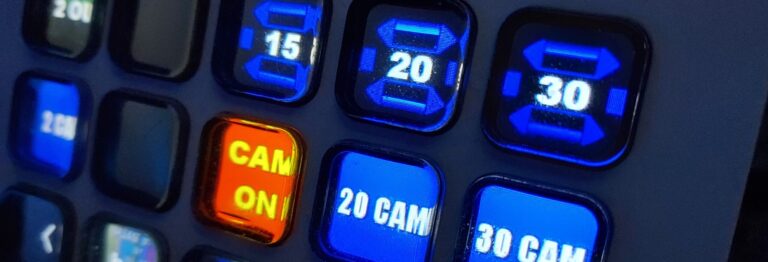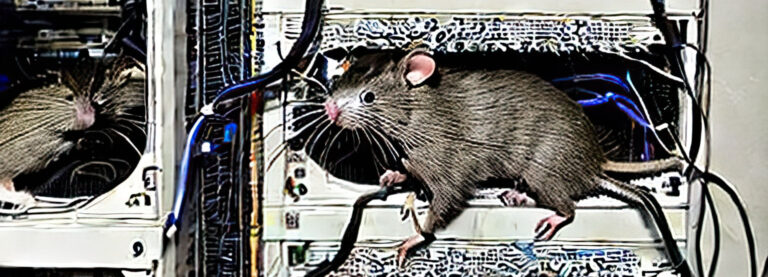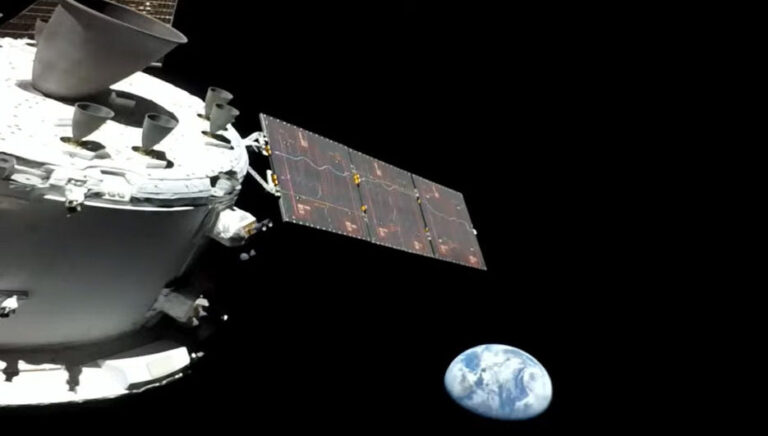Previously on Scribblings… this week I’ve been writing about Air New Zealand flight TE901, an Antarctic passenger sightseeing flight that crashed into Mt. Erebus on November 28, 1979, killing all aboard. We’ve already looked at the institutional mistakes that were made, and the unfolding tragedy that they caused.
The second investigation of flight 901, known as the Mahon Report, investigated not only the flight and the crash, but the conduct of both Air New Zealand and the principal investigator behind the first report, civil aviation investigator Ron Chippindale. Mahon alleged that Air NZ had quickly shredded documents that would have exposed them to increased liability, and that Chippindale had fallen for the okeydoke without digging deeper.
In the matter of the black box transcript (excerpted yesterday), Mahon also noted that there were dozens of deviations – some of them major – between the transcript written by a group sent to Washington to listen to the recording (a delegation which included co-workers and acquaintances of the 901 flight crew, who would’ve recognized their voices and inflection as well as understood the lingo), and a separate transcript included as part of Chippindale’s report, “edited” and submitted by Chippindale himself. Now-famous (infamous?) borderline-nonsensical phrases such as “A bit thick here, eh Bert?” (when no one named Bert was on the flight deck) cropped up in the Chippindale transcript. (FYI: yesterday’s piece was derived from the “Washington transcript,” not the “Chippindale transcript.”) In some cases, Justice Mahon alleged, Chippindale reinterpreted elements of the recording to fit the theory he was already developing well before handing in his report: pilot error. Just as Jim Collins and his crew were expecting to see McMurdo Sound, New Zealand’s top air safety official was expecting to hear Collins and his crew get everything wrong. Chippindale’s edits to the transcript were an unprecedented breach of protocol, then or now.
A key figure in the Mahon Report was Air NZ pilot Capt. Gordon Vette, an aviation rock star if New Zealand ever had one. Just before Christmas 1978, on Air NZ flight 103, Vette was ordered to divert off-course to help locate a single-pilot Cessna being delivered from America to New Zealand with a few stops along the way. After taking off from Pago Pago Island, the Cessna pilot realized that his own navigational systems had failed, leaving him lost somewhere over the Pacific. With Gordon Brooks – later of flight 109 – as his flight engineer, Vette went from establishing radio contact with the Cessna to locating it and helping to lead it to Norfolk Island before it ran out of fuel, something the smaller plane was in grave danger of doing as its lost pilot had been at the stick for over 23 hours. Gordon Vette was an exceptional pilot.
He also knew that Collins was a top-notch pilot, entrusted with the biggest plane Air NZ was currently flying, with a solid flight crew behind him. Vette would not stand still for the airline to accuse them of being anything less, especially when none of them were alive to answer those accusations. Vette wound up ditching his career as a commercial airline pilot to assist the Mahon investigation – if nothing else, he was throwing in his lot against the findings that cleared Air NZ of any blame, amounting to career suicide – and in the process conducted studies and did research leading to immense strides in the study of human vision, depth perception, and the “sector whiteout” phenomenon that had robbed the crew of flight 901 of the last chance they had to avert disaster.
By formally accusing Air NZ of a large-scale cover-up, Justice Mahon made very few friends with his Royal Commission report, just as Capt. Vette alienated virtually every acquaintance he had as a commercial airline pilot. Air NZ was owned by the government of New Zealand at the time, and its management appealed Mahon’s findings to Prime Minister Robert Muldoon, whose administration had close ties to the airline and to the civil aviation body to which Chippindale belonged. In record time, a comprehensive report prepared by a well-respected judge in good standing, containing groundbreaking research that, to this day, is cited as the starting point of major advances in aviation safety (including, but not limited to, the modern standard of enhanced ground proximity warning systems), was dismissed by the government. Like Vette before him, Justice Mahon resigned from the career that he’d spent his whole life building, because by exposing a more accurate version of the factors behind the tragedy, he’d pissed off the people in power.
I’ve never flown a plane before, but in metaphorical terms, I’ve been both the pilot flying with bad information, and the guy who made a mistake that supplied the next pilot with bad information. In my last job, I had to “fly” a broadcast automation system that, while not nearly as complex as a commercial airliner, was responsible for four different playlists, often playing different things, on paths to four different transmitters. If the flight plan – the playlist – was off even slightly, any or all of those stations could “go black,” with the immediate effect that the company was suddenly hemorrhaging money from one or more wounds. Maybe not life or death, but if the company suddenly loses a couple hundred thousand bucks on your watch because pain advertising didn’t run, it’s going to be life and death for your job.
I’ll be the first to admit that I crashed and burned a few times and managed to walk away. Sometimes with severely clipped wings, and deservedly so.
Flight TE901 is a five-car pile-up of organizational mistakes, but there’s also a lesson in the aftermath of the investigation: Vette and Mahon took great pains to speak truth to power. Surely both of them knew that they weren’t in for a smooth landing on the other side. But they lowered their gear and brought it in anyway.
In my job, the local traffic department, responsible for generating each of the four playlists, had been reduced in force to a single person; the generating of the playlists had been moved to the corporate office in Charlotte, with our lone traffic person now relegated to fixing the inevitable assembly line of boneheaded mistakes that arose in the Charlotte playlists. It was then the job of each of us “flying” the stations to check ahead on our playlists, and do further reprogramming to account for the quirks and schedule changes that we knew were there all along, but couldn’t get the Charlotte office to acknowledge.
One mistake, and the wrong thing would play at the wrong time. Dead air. Think that’s the sound of silence? No, that’s the sound of thousands of TVs changing channels. To the competition, whose ads don’t pay my paycheck. Pull up. Pull up.
(Please understand: I’ve no wish to make a banal comparison between running TV stations and an air accident that killed over 250 people; I wouldn’t presume to do their memories that disservice.)
But follow the similarities: I was at the mercy of someone else’s flight plan, and I kept fixing it rather than raising a hell of a lot of noise about it. If I was ever on vacation or sick and my relief wasn’t aware of the fixes to the flight plan that had to be made… well, they’d wind up kissing some mountains along the way at a high rate of speed.
In a nutshell, what went wrong:
- A long-standing mistaken kept occurring, and the “end user” kept fixing it. Fixing it once or twice is kosher; continuing to take the responsibility for delivering the correct flight plan, however, is not your responsibility. Raise hell about it.
- When the fix was eventually made, notification to the affected parties was not given. This is the mistake that delivers you to death’s door, rings the bell, and then runs away with you still flying toward it. If you’re the one who’s raised hell about getting the fix implemented, also raise hell about ensuring that everyone knows about it. Not to win plaudits for yourself, but to make sure nobody runs into any volcanoes while they think they’re just doing what they’re supposed to do.
- Do the flying, let someone else do the blaming. One of my least favorite frakkin’ things about the corporate mentality in this day and age is the knee-jerk race to point fingers before the hole in the dam is even plugged. If someone else has screwed you over, keep it in the back of your head and save it for the briefing after you land. Your most immediate resposibility is to pull it out of the fire and bring it down safely. Maybe it’s not as dramatic or showy as being able to name-and-shame someone, but ultimately it’s a better idea to fix the damn problem first. It’s easier to argue on the deck of a boat if it’s not taking on water. Also, don’t spend your time blaming the plane unless you can damn well back that claim up; even if the thing was always going to smack into a mountain, everyone else is going to assume pilot error.
To be sure, the crew of flight 901 didn’t have a chance to face their accusers and make counteraccusations. This is really a bit of a sore point with me: while the NZ Parliament “tabled” the Mahon Report in 1999 – in essence, officially accepting it some 13 years after Mahon himself died, a few years into his less-than-happy forced retirement – nothing has been done to officially release the crew from blame. It’s almost silly to be talking about it 32-years-and-change after the fact, but it’s almost as if the government has taken the official position of cherry picking what it wants from the two investigations: Judge Mahon was probably right about what happened, but we’re sticking with the Chippindale Report’s ideas on who’s responsible.
Nice. In the meantime, the widows and children of the men on the plane’s flight deck continue to live out their lives in the shadow of what is essentially – whether Chippindale ever intended it to be or not – a trial verdict.
Put yourself in Captain Collins’ shoes if he knew what we know now about his flight. If your company isn’t giving you the tools to land the plane safely, there’s going to be hell to pay. Demand the right tools. Demand that everyone else in your position knows that they’re available. If you can’t even get that… I’d be looking to fly a plane for someone else.










+ There are no comments
Add yours